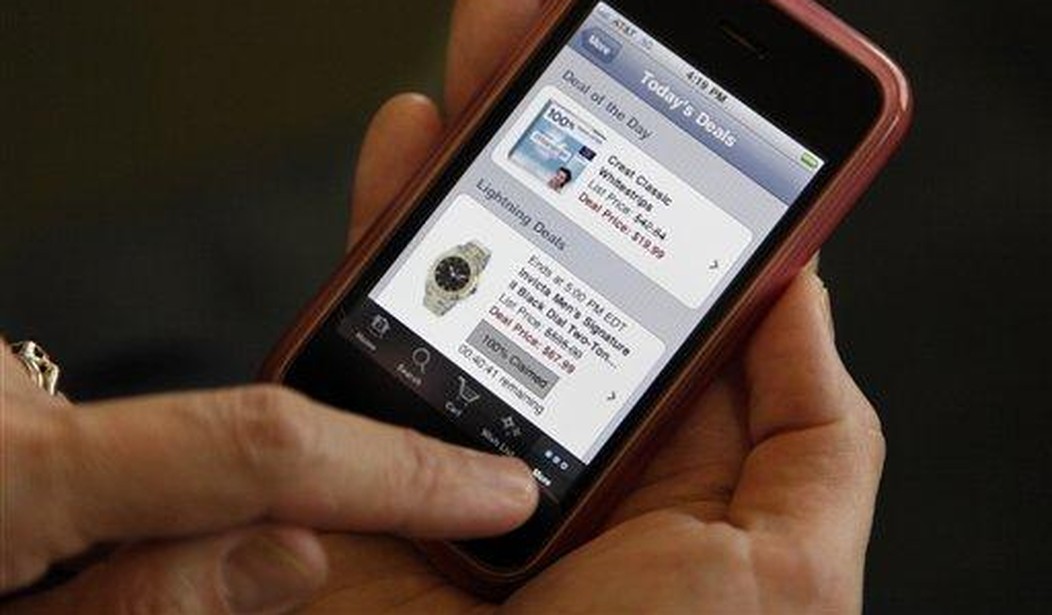Next time you go to a restaurant, take a look around the room. Chances are half the people will be sitting in silence staring at their phones. This includes people there with their friends and family. We are so used to this that we've grown numb to it, but it's horrible.
What's the point of going out to dinner in the first place? It's not just to eat. People can do that at home and save a lot of money and time. Meals are social activities; they always have been. Going out to dinner is one of the most enjoyable social activities ever invented. For a family to do that and then each sit quietly staring at their phone is truly sad. And it begs the important question of what's going to happen to the kids doing this.
Americans check their phones an average of 344 times per day or about once every four minutes. When you factor in sleep time it's more like at least once every three minutes. In total, people spend about three hours a day staring at their phone on average. On a yearly basis, this means the average American is staring at their phone for 44 full days a year (again, this is without even factoring in sleep time, so call it 60 or 70 days a year). Seventy-one percent of people look at their phones within 10 minutes of waking up, and 74% say they can't leave their phone at home without feeling uneasy.
It's hard to look at these numbers and call it anything but an addiction. Given the long list of problems in America today, people are not talking enough about this device addiction. The dinner example is just an illustration. The real problems are 1,000 times worse than a lost social opportunity. The damage is real, and it's extremely harmful.
Excessive use of mobile devices and social media causes stress and depression. This is true for everyone, but most acutely among young people. The numbers are startling, and they are the worst among teens. According to the Pew Research Center, the number of teens who experienced depression increased 59% from 2007 to 2017. For girls, it's even worse.
Recommended
Guess what else took off over the same exact time period? Smartphone use among teens. More and more kids started getting smartphones in this exact time period, and they've been starting to use them at a younger age every year. One percent of kids get their first phone by age 1 or 2. The numbers keep trickling upward until age 9 to 10, when 20% of kids get their first phone. An additional 26% join them between ages 11 and 12, and a final 20% between 13 and 14. After age 14, virtually all kids have smartphones. It's past time to rethink all this.
In addition to depression, there are many other radical shifts among teens during this time of explosive phone use growth. As time with their phones went up, time with friends went down, and so did part-time jobs, dating and other personal interactions. Some signs seemed good. Teen pregnancy dropped, but I don't think anyone would have offered up social isolation as a cure for that problem.
The ultimate cost of all this isolation and depression has been an explosion in teen suicide. According to the Centers for Disease Control and Prevention, after holding pretty steady from 2000 to 2007, the rate of teen suicide jumped by 60% from 2007 to 2017.
Adults today had the luxury of growing up without these dangerous devices in our hands. The introduction of smartphones made our lives easier, or at least more efficient. Now we are just starting to realize the downsides for everyone. There is zero chance people's brains are not being affected, but for kids, it's a flat-out crisis.
I recently saw firsthand the effects of limiting smartphone usage among kids and adults. Last summer, my family went on a backcountry river rafting trip in the Frank Church Wilderness of Idaho. At over 2 million acres total, this is the largest contiguous federal wilderness area in the lower 48. Along with the rest of its natural beauty, there are no cell towers. For a week straight, my family and three others lived life the way we used to. I noticed the change even in myself. The first morning I woke up in my tent and instinctively reached for my phone. Then I remembered there was nothing to check. It was honestly an amazing feeling. One that I had not had since the 1990s. I didn't touch my phone again for the rest of the trip. As liberating as I found it, the best part was seeing the effects on the teenagers among the four families. There were 11 total. Most had never met each other. With no phones, they got to know each other fast. And by the end, each one said they love!
d it.
As awesome as this smartphone break was, we aren't going to get rid of phones altogether, even among teens (or maybe especially among teens), so where do we go from here?
The first step is probably admitting the problem. As much as devices have added some convenience and efficiency, there's something truly horrible about them. My sense is we all know this but don't want to admit it. We should start. Society used to be more accepting of all sorts of bad things. Where I grew up in the 1970s, littering was still socially acceptable. That's no longer the case anywhere. It starts with a public acknowledgement and some condemnation. Littering is no longer socially acceptable anywhere. Staring at your phone at dinner shouldn't be either.
Neil Patel co-founded The Daily Caller, one of America's fastest-growing online news outlets, which regularly breaks news and distributes it to over 15 million monthly readers. Patel also co-founded The Daily Caller News Foundation, a nonprofit news company that trains journalists, produces fact-checks and conducts longer-term investigative reporting. The Daily Caller News Foundation licenses its content free of charge to over 300 news outlets, reaching potentially hundreds of millions of people per month. To find out more about Neil Patel and read features by other Creators writers and cartoonists, visit the Creators website at www.creators.com

























Join the conversation as a VIP Member